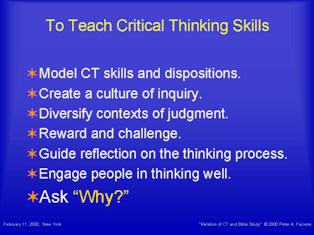Since I have moved and am currently looking for a new teaching position, I will share with you some common interview questions that I have found. Practice answering these questions OUT LOUD, maybe even in front of a mirror. It may seem weird, but the better you know what you're going to say, the less you may ramble or stumble on a question. I have had 3 interviews in the past year, and 2 more coming up this week. The previous 3 weren't the right fit, although I did well. The next 2 are really a good fit, and I'm anxious to see what happens.
Page 1
FREQUENTLY ASKED QUESTIONS
Interviewers are paid to ask questions! The following questions were asked
during previous teacher interviews. Use these to practice and you will be
prepared to communicate your teaching skills.
1.
Why do you want to teach?
2.
What is your philosophy of education?
3.
If students are having difficulty learning a skill or concept, what do you do?
4.
Describe your style of teaching.
5.
Would you like to be involved in school (community) activities?
6.
What do you plan to be doing in five years? What are your career goals?
7.
Describe your student teaching experiences.
8.
What was your biggest problem in student teaching? How did you resolve it?
9.
What three words would your students sue to describe you as a teacher?
10.
How do you individualize your teaching?
11.
What techniques would you use to keep students actively involved and
motivated during a lesson?
12.
What are the rules of your classroom? How are they established?
13.
What are the qualities of an excellent teacher? Which of these qualities
do you have?
14.
Some of your students always finish their assignments early. How would
you deal with the free time that they have?
15.
How would you work with students who perform below grade level,
especially those from disadvantaged socio-economic backgrounds?
16.
What coursework have you taken that you feel has made you an
especially competent teacher?
17.
How would you use teacher aides and parent volunteers?
18.
Are parent/teacher conferences important?
19.
Why do you want to work in our district?
20.
What materials have you used that you find most effective for the slow
learners? The quick learners?
21.
Why should our school district hire you?
22.
Describe an ideal classroom.
23.
Describe the types of quizzes and tests that you give. In a quarter, what
types of evaluations compose your quarterly report?
24.
A student is consistently late to your class. How do you handle the
situation?
25.
What would you do, or how would you treat a student who refused to do
the work you assigned?
26.
How would you handle a student who continually “acted up” in your class?
27.
How do you engage a parent in the education of his or her child?
28.
How should a student’s educational achievement and progress be
measured?
29.
What do you expect from your supervisor? Your Principal?
Page 2
30.
How do you stay organized?
31.
What excites you? Annoys you? Bores you?
32.
What motivates you?
33.
Whom do you admire?
34.
Why do you want this job and what do you expect to get from it?
35.
How do you keep from getting burned out?
36.
What didn’t you like about your last position?
37.
What would you do if your Principal made a decision you didn’t like?
38.
What do you dislike about teaching?
39.
Describe how you are a self-starter.
40.
Give an example of how you handle conflicts.
41.
If you had an idea for improving the school, how would you sell it to
colleagues and the Principal?
42.
If you weren’t a teacher, what would you be and why?
43.
What gives you job satisfaction?
44.
How do you get ready to teach a lesson?
45.
Describe the best lesson you ever taught and explain why it worked.
46.
Describe the worst lesson you ever taught and explain why it went badly.
47.
How do you find out what students need to know?
48.
If a lesson flops, what do you do?
49.
How do you handle angry parents?
50.
Give examples of how you handle pressure and stress.
51.
Describe an ideal teaching-learning situation.
52.
Why should we hire you over all the other candidates?
53.
What kind of technology do you use in the classroom?
54.
If it came down to you and 2 other candidates for a teaching job, what
would qualify you? Why should you get the job over the others?
55.
What is a question you might have expected us to ask and we didn’t?
This is your opportunity to answer that question.
56.
How do you manage the diverse learning styles in your classroom as well
as diverse learning abilities?
57.
Describe how you evaluate your lessons (summative evaluation)
58.
Evaluation methods other than tests.
59.
What learning styles have you used?
60.
What is your goal?
61.
Do you use cooperative learning?
62.
Tell me in detail a reading lesson you developed, the reason why you
planned this lesson, the children’s reactions, specific learning tools utilized
and things you taught through the lesson and why.
63.
If you had a child who had a bad grade at the beginning of the unit, and an
“A” at the end, would you count the bad grade?
64.
Explain your classroom management policies.
65.
What do you think are parents’ expectations of today’s teachers? What do
you think of these expectations, agree/disagree?
66.
Knowledge about graduation exams and SAT tests.
67.
Tell of a time when you took initiative to complete a task.
Page 3
68.
Why are you staying in this area?
69.
How would you stay in contact with your parent?
70.
Tell me something that you have initiated yourself.
71.
How would you teach reading to 1st
graders?
72.
What would you do if you had 3rd or 4th
graders who couldn’t read?
73.
Describe how you see yourself as a professional in the classroom.
74.
What have you experienced student teaching?
75.
What are you looking for? What do you expect?
CANDIDATES MUST ASK QUESTIONS, TOOIf you are serious about teaching in the district where you are interviewing, there
are many questions to which you need to know the answers before you accept
an offer. Your interviewer will surely cover some of your questions, but by asking
pertinent questions you will show your interviewer that you do understand
fundamental issues relating to teaching. You should have several questions in
mind before you arrive for you interview.
The following questions should give you a good start.
1.
What is the teacher/student ratio in your district?
2.
Do you encourage teachers to earn graduate degrees?
3.
How many classes a day will I be expected to teach?
4.
What types of school activities promote parent-teacher-student
interaction?
5.
Tell me about the students who attend this school.
6.
What textbooks does the district use in this subject area?
7.
Do teachers participate in curriculum review and change?
8.
Does your district promote staff development activities and conferences?
What types of programs have the teachers attended in the last year?
9.
How does the teaching staff feel about new teachers?
10.
What discipline procedures does the district use?
11.
Do parents support the schools? Does the community?
12.
Do your schools use teacher aides or parent volunteers?
13.
To what extent do staff members work collaboratively to solve problems
and respond to the needs of students?
14.
How are teachers assigned to extracurricular activities? Is compensation
provided?
15.
Does the district have a statement of educational philosophy or mission?
16.
What are prospects for future growth in this community and its schools?






















